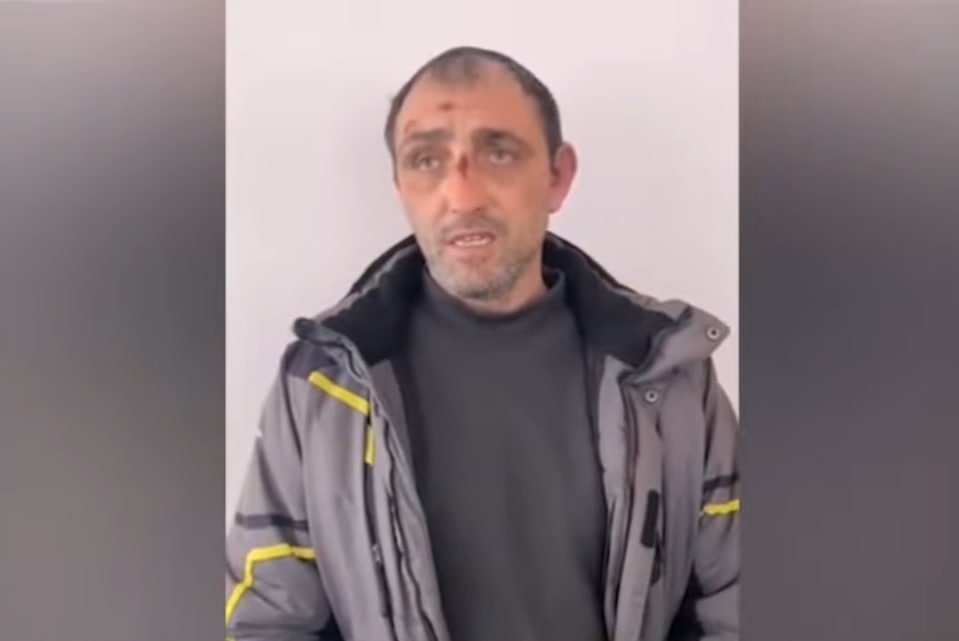The “second rail war” in Belarus, which started almost at the same time as the war in Ukraine, has come to an end. Possibly, there will someday be a third and a fourth one. But that one — the spontaneous one, the war in response to Russian troops advancing on Ukraine from Belarusian territory — is over at present. I cannot write that it was “lost”. Because both Russian and Belarusian authorities realised that the territory of Belarus is not completely safe for the aggressor’s troops. This is probably why partisans are being taken prisoner, just like soldiers are. And why they get tortured, shot, and jailed.
‘Deadly force used’
Novaya Gazeta Europe covered the rail war and why it was the second one back in April 2022 — immediately after the people who had disabled signal control cabinets and put logs on railway tracks were arrested. A short reminder about the name — actions of Belarusian partisans in the occupied territories during the Second World War are referred to as the “first rail war”. Partisans purposefully damaged railway tracks and derailed German trains with equipment, weapons, and ammunition.
On 10 February, the last group of partisans who were arrested by Belarusian law enforcement agents in March 2022 got sentenced.
Vladimir Avramtsev and Dmitry Klimov were sentenced to 22 years behind bars each on charges of committing an “act of terrorism”, “high treason”, “participating in an organisation created for terrorism purposes”, and “deliberate disablement of transport means or communication lines”. Together with them, Yevgeny Minkevich was on trial for failing to report a crime. He was sentenced to 1.5 years in a penal colony, however, amnesty and the time he spent in a pre-trial facility led to his term being considered served. The court issued a ruling for the case with such grave charges in camera over the course of just two weeks.
Because of Avramtsev and Klimov, even those who use TV as their only source of news found out about the rail war.
Both men were arrested on 30 March 2022 in a demonstratively public way, with Belarus’ KGB and Special Response Team cooperating on the arrest. The law enforcement even reported the use of “deadly force weapons”. At least, that is what the deputy interior minister said: “The terrorists actively resisted [arrest], deadly force weapons were used”.
The video of the arrest shows that both Avramtsev and Klimov are injured (they were shot in the kneecaps). Avramtsev can barely talk, he is having trouble breathing.
Vladimir Avramtsev is a 28-year-old athlete and master of sports, as well as a former member of the Belarusian national Greco-Roman wrestling team. He worked as a fitness trainer.
Dmitry Klimov is a year older than Avramtsev. It is known that a year before his arrest, he became a regional manager of a taxi service in the city of Hrodna.
Yevgeny Minkevich, as newspaper Evening Babruysk reported at the beginning of 2020, worked as a driver. In January 2020, he married a woman named Yana, and a local newspaper named them newlyweds of the week. For some time, nothing was known about the circumstances of Yevgeny’s arrest, so the search and rescue team Phoenix even reported him missing. Minkevich, by the way, did not take part in Avramtsev and Klimov’s partisan raid, so one could say that he got lucky — he was only charged with failure to report a crime.
According to the prosecution, the two men set two signal control cabinets on fire at the Asipovichy-Vyeraytsy railway section in the Mahilyow region of Belarus in the early hours of 22 March 2022. Judging by the Emergency Services bulletin, the equipment was damaged, however, it did not lead to delays in train traffic. Thus, the 22-year sentence given to Avramtsev and Klimov is more than likely law enforcement publicly putting an end to the second rail war. It is known that the thing that happens last is always the most memorable. So, the last defendants get the scariest sentences.

From left to right: Yevgeny Minkevich, Vladimir Avramtsev, Dmitry Klimov. Photo: Twitter
Ghost trains
In the same video released by Belarus’ Ministry of Internal Affairs about armed arrests and the detained men being shown with gun wounds in their kneecaps, there was another person featured — Vitaly Melnik. Not long before Avramtsev and Klimov got their sentences, Melnik was sentenced to 13 years behind bars. He was accused of setting fire to a signal control cabinet used at the Novosady-Barysaw railway section in the early hours of 25 March 2022, which created a threat of grave consequences occurring.
Melnik, 40, was detained by Almaz (the Anti-Terrorism Division of Belarus’ Ministry of Internal Affairs), but he got shot in his kneecaps the same way Klimov and Avramtsev did by the Special Response Team. Deputy Interior Minister Gennady Kazakevich was referring to Melnik when he was speaking about an arrested man who had been gravely injured and taken to a hospital.
This is what we know about Melnik: before his arrest, he lived in the village Khadakova near Minsk, he has a prior conviction, and after a gun was used on him during his arrest almost a year ago, he is still walking on crutches in the detention centre he had been placed in. He was tried on four different charges: committing an “act of terrorism”, “deliberate disablement of transport means or communication lines”, “illegal activities in relation to weapons”, and “insulting Belarus’ president”. The last article has no connection to the signal control cabinet — it is just that after his arrest, the prosecution went through Melnik’s social media and comments.
According to the prosecutor’s office, due to the actions of the defendant, railway transport traffic was derailed — 22 freight and 17 passenger trains were delayed. Only there is one small inconsistency. The Emergency Services bulletin from 24-25 March 2022 states: “Following the fire, equipment was damaged; the speed of trains between traffic signals has not been disrupted. No one was hurt. The cause of the fire is looked into.”
The speed was not disrupted, apparently. What about the injured people? Where are the angry consignors, where are the passengers, where are the outraged statements by Belarusian Railway, where are delay announcements? None of it happened. Thus, dozens of delayed trains just appeared in the prosecution’s court files? It seems so.
At the same time, Avramtsev and Klimov were sentenced to 22 years behind bars, but their case had no mention of any trains getting delayed. And even if almost 40 trains mentioned in Melnik’s case had been in fact delayed due to his actions, then he, a person with a previous conviction, would have probably not been given only 13 years, when 22 years of imprisonment is an option. Of course, I do not exclude the possibility that some details of the cases tried behind closed doors remain unknown to us. But the Emergency Services bulletin in this propaganda fire seems to be the most independent source of information.
Another inconsistency: Melnik’s case was tried in two weeks, just like the case of Avramtsev and Klimov. But if there are 22 freight and 17 passenger trains that had been delayed, then the case files should have included examination reports, statements from the trains’ conductors, additional passenger witnesses — such a full-scale “terrorist attack” could not have been considered in court so quickly.
Garage talk gets you 14 and 16 years in prison
Two days before Avramtsev and Klimov were sentenced in the city of Homiel, another pair of rail partisans from the city of Mazyr received their punishment. Yury Selvich and Sergey Pleshkun were sentenced to 14 and 16 years behind bars respectively. They did not set any signal control cabinets on fire — by the time of their arrest, the two men, who had met during the 2020 protests, were just starting to work out a plan on how to wreak chaos on Russian trains transporting military equipment going to Ukraine through Belarus.

Sergey Pleshkun and Yury Selvich. Photo: screenshot from a video
In the first days of the war, Pleshkun sent in a video of a Russian train convoy to Belarusian Telegram channel NEXTA. It is possible that it was that move that put him on the radar of secret services.
Pleshkun and Selvich discussed their plans about disabling railway tracks in a garage; there were cameras installed in the garage. Law enforcement agents recorded their conversations and later aired them on state TV.
Selvich refused to testify and cooperate with the investigation, while Pleshkun confessed (their different approaches did not yield results — Pleshkun was sentenced to 16 years, while Selvich to 14. Aside from the usual articles used in these instances, both of them were also charged with facilitating extremist activities and inciting hatred).

Photo: screenshot from a video
Pleshkun and Selvich were detained on 28 February 2022. It was the first time that rail partisans were arrested. There was no live stream of the arrest, no one shot anyone in the kneecaps, because back then the Belarusian government, probably, could not imagine the rail war continuing. Otherwise, shootings and people lying on the ground in a pool of their own blood would have appeared on TV screens immediately. However, 28 February was just the third day of the rail war, only two rail track devices were disabled at the time, and no one has noticed any connection between the instances yet.
Terrorism is a family affair
On 28 February, the same day Pleshkun and Selvich were being detained in Mazyr, a signal and block control cabinet was set on fire at the railway station Astankovichi-Zherdz (it is part of the Zhlobin-Kalinkavichy line that leads to the Ukrainian city of Ovruch). On 4 March, law enforcement agents detained three local residents in connection with the crime.

Denis Dikun. Photo: Viasna Human Rights Centre
A little while later, human rights defenders found out the names of the detainees: 52-year-old Oleg Molchanov, 34-year-old Dmitry Ravich, and 30-year-old Denis Dikun. According to the Viasna Human Rights Centre, they were not detained on their own: Ravich was detained together with his wife, Dikun with his girlfriend. By the way, the girlfriend in question, Alisa Molchanova, is Oleg’s daughter, while Denis is the brother of Natalia Ravich, Dmitry’s wife. Basically, a big family-run partisan unit (and according to the prosecution, a terrorist one).
Eventually, the women were released. A video showing beaten up Denis Dakun with a broken face confessing to setting the signal control cabinet on fire appeared on unofficial Telegram channels of Belarusian law enforcement (these channels have been by now deleted by Telegram). In their native town of Svietlahorsk, people who knew them were surprised: the family was not known to be political; they lived normal lives and ran a small business.
There were no mentions of trains being delayed due to the signal control cabinet having been set on fire. There were no documentaries on the criminal lives of the Svietlahorsk partisans. They were tried under the same articles as the other partisans: committing an “act of terrorism”, “high treason”, “creating an extremist organisation”, and “deliberate disablement of transport means or communication lines”. Their sentences were pronounced on 28 December 2022. Dikun was sentenced to 23 years behind bars, Ravich to 22, and Molchanov to 21. By the way, the Emergency Services bulletin dated 28 February 2022 has no mention of a signal control cabinet at the railway station Astankovichi-Zherdz being on fire at all. This, of course, proves nothing, but it does pose questions there are no answers to, as of now.
Terrorist attacks that never happened
The rail partisans were not only tried in groups, like the case of the Svietlahorsk partisans, or alone, like in Melnik’s case. A married couple, Sergey and Ekaterina Glebko, were arrested, too. The couple lives in the town of Stowbtsy. Sergey is 44 years old; he and Ekaterina have three children. In the early hours of 2 March 2022, the spouses brought logs to a railway track and set them on fire. Their actions called back to the first rail war, during WWII. No signal control cabinets, just good old wood on the tracks.

Sergey Glebko. Photo: Viasna Human Rights Centre
The married couple was detained at the scene of the crime. The video comment from Deputy Interior Minister Gennady Kazakevich from 2 March 2022 features recordings from Sergey’s phone and his interrogation. Glebko recorded everything on his phone camera — the footage shows a fire on the rails and Sergey is heard saying: “The Brest direction: not one piece of shit will reach Ukraine!” Later on in the ministry’s video, severely beaten-up Sergey repents and admits guilt — immediately after Kazakevich has finished saying “one does not negotiate with terrorists, one destroys them”.
Sergey, evidently, took all the blame: his wife Ekaterina was set free. On 17 October 2022, Sergey was sentenced to 11 years of imprisonment.
Another loner partisan Alexey Shishkovts received the same sentence just four days earlier. Although the 43-year-old resident of the Asipovichy town did not set anything on fire. But law enforcement agents claim that he was planning to.
Alexey is a businessman, he took part in the 2020 protests and administered a local neighbourhood chat — countless chats like that were created in all cities, districts, and neighbourhoods of Belarus [as the protests went on]. Fuel and lubricants were discovered in his garage during a search, messages from his phone were read. No signal control cabinet was damaged, no log was set on fire, no train was delayed, but Alexey got sentenced to 11 years behind bars for an act of terrorism that never happened.

Sergey Konovalov. Photo: Photo: Viasna Human Rights Centre
Sergey Konovalov, a 50-year-old railway worker from the Viciebsk region, was also sentenced to 15 years behind bars for nothing. He was detained on 6 March 2022. According to the Internal Ministry’s statement, Konovalov planned to disable the systems used to ensure railway traffic safety, the ones he had access to. Obviously, beforehand he read one too many posts on destructive Telegram channels — very rarely does a law enforcement statement on someone’s arrest not mention the Telegram channels.
Two days later, a message appeared on the Telegram chat Live. Community of Belarusian railway workers. It said that the main reason for Konovalov’s arrest was “personal dislike” from his boss who reported Konovalov’s alleged preparations for an act of sabotage. Thus, Konovalov was arrested without any real reason, the community said.
Konovalov was sentenced to 15 years of imprisonment, Community of Belarusian railway workers, which had become one of the most important sources of information on movements of Russian troops and its military equipment on the Belarusian territory, was recognised as an extremist formation with all of its bots and social media pages.
On 19 January, it was reported that the 15-year-old brother of the channel’s administrator had been arrested and put under pressure in jail. For three days, they would not let the boy see neither a lawyer nor his parents, but they continued asking him to delete the Telegram chat. And who is the real terrorist?
Do not sleep, hostage
So, let’s count the rail war losses. Twelve people, almost 200 years behind bars in total, an “extremist” railway-themed Telegram community, two burnt logs, four signal control cabinets. Wait a second. There was another series of disruptions — disabled signal control automatic and telemechanic devices: five cases of them being disabled at five different railway sections from 26 February 2022 to 16 March 2022.
But this is not what rail partisans were tried for. So, someone managed to get away with it. Once again, wait a second. At the beginning of March, all the horrifying videos with beaten up faces and shot down kneecaps were already online. This means that those who disabled devices on 15 and 16 March knew all too well what they would have to face in case they got caught. But they still did it. And were not caught.
Thus, it is too soon to claim that the rail war has been lost. There are still partisans left in Belarus, they are in hiding. If there are sleeper agents, why can’t there be sleeper partisans?
Join us in rebuilding Novaya Gazeta Europe
The Russian government has banned independent media. We were forced to leave our country in order to keep doing our job, telling our readers about what is going on Russia, Ukraine and Europe.
We will continue fighting against warfare and dictatorship. We believe that freedom of speech is the most efficient antidote against tyranny. Support us financially to help us fight for peace and freedom.
By clicking the Support button, you agree to the processing of your personal data.
To cancel a regular donation, please write to [email protected]

